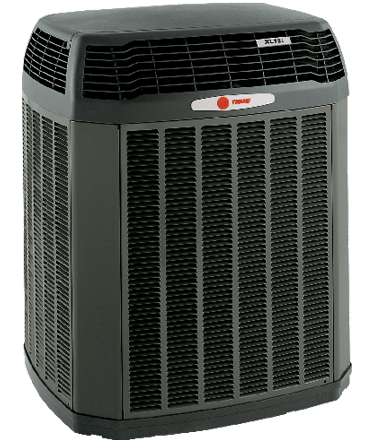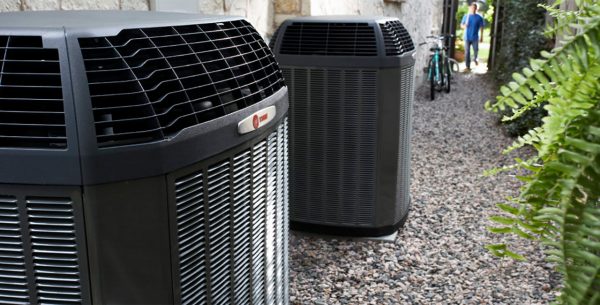New Air Conditioning Cost in 2024: Factors and Trends Impacting Prices

Factors Affecting New Air Conditioning Cost in 2024
Air conditioning plays a vital role in maintaining comfort levels, especially in regions with extreme climates. As technology evolves and environmental concerns grow, understanding the costs associated with installing a new air conditioning system in 2024 is crucial for homeowners and businesses alike.
Explanation of the significance of air conditioning
Air conditioning not only provides relief from oppressive heat but also contributes to indoor air quality and productivity levels.
Introduction to New Air Conditioning Cost.
In this article, we delve into the various factors influencing the cost of new air conditioning systems in 2024, shedding light on trends, environmental considerations, and cost-saving measures.
The cost of installing a new air conditioning system can vary significantly due to several factors.
Technological advancements
Advancements in air conditioning technology may lead to more efficient systems but could also impact initial purchase prices. The rapid pace of technological advancement has revolutionized the air conditioning industry. Modern systems are equipped with advanced features aimed at enhancing efficiency and reducing energy consumption. From variable-speed compressors to smart thermostats, these innovations not only improve comfort but also impact the overall cost of air conditioning.
Energy efficiency considerations
With a growing emphasis on sustainability, consumers are willing to invest in energy-efficient systems, even if they come at a higher upfront cost.
Installation complexities
Factors such as building layout, existing infrastructure, and local regulations can influence installation costs, especially for complex systems like ducted air conditioning.
Types of Air Conditioning Systems
When considering a new air conditioning system, it’s essential to explore various options to find the best fit for your needs. There is no one-size-fits-all solution when it comes to air conditioning systems. Homeowners can choose from various options, including central air conditioning, ductless mini-split systems, window units, and portable air conditioners. Each type comes with its own set of advantages and cost considerations, depending on factors such as installation requirements and cooling capacity.
Split system
Split systems offer flexibility by allowing different temperatures to be set in individual rooms, making them ideal for residential applications.
Ducted system
Ducted systems provide centralized cooling and heating, offering uniform temperature control throughout the entire property.
Portable units
Portable air conditioners are versatile and easy to install, making them suitable for temporary cooling solutions or smaller spaces.
Cost Breakdown
Understanding the breakdown of costs associated with a new air conditioning system can help budget effectively.
Initial purchase costs
The cost of the unit itself varies depending on factors such as brand, capacity, and features.
Installation expenses
Professional installation ensures optimal performance and may incur additional costs, especially for complex systems. Professional installation is recommended for most air conditioning systems to ensure proper sizing, placement, and functionality. While DIY options may seem cost-effective initially, improper installation can lead to performance issues and potential safety hazards. Hiring certified technicians guarantees compliance with building codes and manufacturer specifications, albeit at an additional cost.
Maintenance fees
Regular maintenance is essential for prolonging the lifespan of your air conditioning system and may involve ongoing expenses.
Strategies for Affordable Cooling Solutions
Empower yourself with practical tips to mitigate rising AC costs. From optimizing energy usage to exploring alternative cooling methods, discover strategies to lower your monthly bills. Uncover cost-effective upgrades and maintenance practices to prolong your AC’s lifespan.
Trends in Air Conditioning Costs
Staying abreast of industry trends can provide valuable insights into the future trajectory of air conditioning costs.
Industry insights
Experts predict a continued focus on energy efficiency and sustainability, influencing pricing strategies in the industry.
Forecasted changes
Economic factors, such as material costs and labor shortages, may impact the overall cost of air conditioning systems in 2024.
Consumer expectations
Consumers increasingly prioritize comfort, convenience, and environmental responsibility when investing in new air conditioning systems.
Environmental Impact
The environmental footprint of air conditioning systems is a growing concern, prompting the development of eco-friendly alternatives.
Energy consumption
Energy-efficient systems help reduce electricity consumption and lower greenhouse gas emissions, benefiting both the environment and consumers’ wallets.
Eco-friendly options
From solar-powered units to geothermal heat pumps, innovative technologies offer sustainable alternatives to traditional air conditioning systems.
Regulatory factors
Stringent regulations aimed at reducing carbon emissions may influence the availability and pricing of certain types of air conditioning systems.
DIY vs. Professional Installation
Choosing between DIY installation and professional services requires careful consideration of various factors.
Pros and cons of each approach
While DIY installation may save money upfront, professional installation ensures proper setup and adherence to safety standards.
Cost implications
DIY projects may incur unforeseen expenses or lead to system inefficiencies, whereas professional installation guarantees quality workmanship.
Financing Options
Exploring financing options can make the upfront cost of a new air conditioning system more manageable.
Loans and financing plans
Many lenders offer competitive rates and flexible terms for financing home improvement projects, including air conditioning installations.
Rebates and incentives
Government incentives and utility rebates may be available for purchasing energy-efficient air conditioning systems, offsetting initial costs.
Leasing options
Leasing allows consumers to enjoy the benefits of a new air conditioning system without the burden of ownership, with the option to upgrade to the latest technology.
Maintenance Tips
Proper maintenance is essential for ensuring the longevity and efficiency of your air conditioning system.
Regular servicing
Scheduling routine maintenance with a qualified technician helps identify and address potential issues before they escalate.
DIY maintenance tasks
Simple tasks such as cleaning or replacing air filters can improve system performance and indoor air quality.
Importance of upkeep
Regular maintenance not only extends the lifespan of your air conditioning system but also helps maintain its efficiency, ultimately saving you money on energy bills.
Navigating the complexities of new air conditioning costs in 2024 requires careful consideration of various factors, from technological advancements to environmental impact. By staying informed and exploring financing options, consumers can make confident decisions that prioritize comfort, efficiency, and sustainability.
Common FAQs
- How much does a new air conditioning system cost?
- What factors influence the cost of a new AC?
- Are there any DIY installation options for air conditioning systems?
- Can I finance the purchase of a new air conditioning unit?
- What are some eco-friendly air conditioning options available?
- How often should I service my air conditioning system?


